On Monday morning, Vladimir Putin was briefed about Ukraine’s audacious invasion of Russian territory. With his military chiefs in front of him, he announced that Kyiv had been doing the bidding of its western masters but would succeed only in the “annihilation” of the troops it had sent to Kursk. All this was, as usual, broadcast live by the Kremlin to reassure Russians that the President was in control of the situation — then everything started to go wrong.
Alexei Smirnov, the acting governor of the invaded Kursk region, had been expected to give details of the successful evacuation of citizens. Instead, he began to reel off the extent of the defeat. The Ukrainians, he said, had captured territory eight miles deep and 25 miles wide. Around 28 Russian towns and villages had fallen. Putin, visibly irritated, interrupted him and said that Ukraine is simply out to “improve its negotiating position in the future.” On this, he’s probably right.
The Kursk raid surprised Ukrainians too. When Volodymyr Zelensky pulled elite units out of the Donetsk region, the bloodiest spot on the front line, to redeploy them across the Russian border, the initial reaction was one of anger. The mood then changed to jubilation when the operation turned out to be Ukraine’s first military breakthrough in a long time. But many in the outside world were baffled. Isn’t this incursion a waste of soldiers’ lives and valuable western equipment? Yet the Kursk offensive starts to make sense when you consider that Zelensky is preparing for diplomatic battle.
For more than a year, the war has been a story of superior Russian forces slowly advancing while Ukrainians fell back. The soldiers I spoke to at the front line last month were exhausted and despondent. Some hadn’t been on leave for more than two years. Fresh conscripts were arriving too slowly. There were too few weapons, too many deaths. The Russian front line seemed impenetrable. “Many do not see our victory, just lost hope,” I was told by the chief sergeant defending the border town of Vovchansk.
Opinions have been changing in the country as well. A recent poll showed that 44 percent of Ukrainian civilians supported “peace talks” with Russia, albeit with reluctance to make concessions. But if talks came, how strong would Zelensky’s hand be? His most recent success was liberating the Kharkiv region and Kherson in 2022, and Ukraine’s long-awaited counteroffensive ended in failure last year. He now faces the prospect of a Donald Trump presidency depriving Ukraine of its main support and forcing negotiations. If Zelensky had any cards left to play, he had to play them now.
The Kursk attack was the first incursion on Russian soil since the second world war. The territory was almost entirely undefended, given Russia has thrown all of its forces to the front line in Ukraine. The $60 billion US aid package had finally started to arrive; Kyiv received several F-16s and used western weapons to strike Russian border areas. Since August 6, at least 380 square miles of Russian territory have been captured. Oleksandr Syrskyi, the Ukrainian army chief and mastermind of the operation, claimed 74 Russian settlements had been seized as of Wednesday.
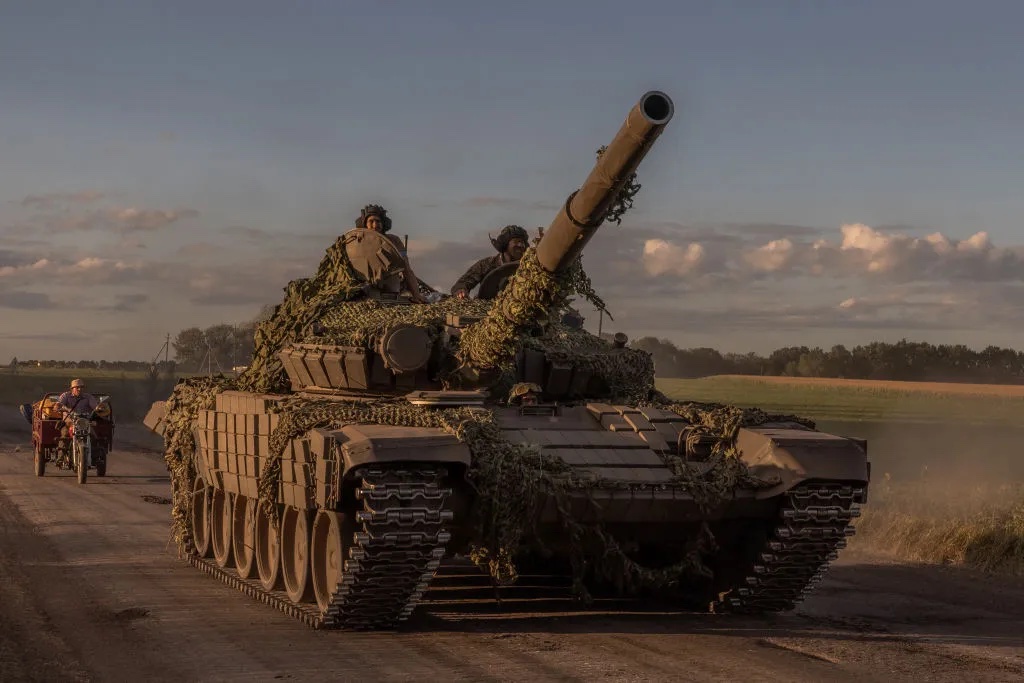
Valery Gerasimov, Putin’s army chief, reportedly had intelligence warnings about Ukrainian troop movements near the border two weeks before the attack, but dismissed them as implausible. Russian border guards put up minimal resistance and many of the new conscripts surrendered without a fight. Social media was soon filled with videos of prisoners of war being loaded on to trucks. Ukraine captured more than 100 Russian troops in less than a day, the military chief said — they will be a part of the PoW exchange fund. Some of them requested to be swapped for the Ukrainian Azov Brigade fighters held in Russian prisons since the fall of Mariupol two years ago.
Instead of going all out to defend his territory, Putin ordered an evacuation — offering £90 to those who fled. More than 180,000 did so, but many stayed. Nonetheless, Russian jets started bombing their own towns. Ukrainian troops suffered losses, but their advance was not seriously slowed. More border breaches then took place in the Belgorod region. Its governor declared a state of emergency on Wednesday morning and began an evacuation there.
It’s hard to overstate what a morale boost this operation has been in Ukraine after more than a year of bloody defense. In a few days, their troops have taken more territory than the Russians have captured all year. Some allies seem inspired too: Lindsey Graham, a Republican senator, called on the Joe Biden administration to cancel restrictions on the use of US weapons. “Bold, brilliant, beautiful. Keep it up!” he said. “Putin started this. Kick his ass.”
Kyiv says that its aims for the incursion are to protect Ukraine’s border regions and to stretch Russian resources and troops. But it also stretches Zelensky’s. His soldiers are digging in, constructing fortifications on captured land — a sign that they intend to stay on Russian soil for a while. Kyiv has made no claim to the captured lands (as opposed to Putin, who held a ceremony to claim four partly occupied Ukrainian regions), and instead may want to use them as bargaining chips in negotiations.
The phrase “peace talks” has long been seen in Ukraine as synonymous with appeasement. Even now, the idea is taboo. Opinion polls may say that almost half of the country believes talks are needed, but to admit as much in public would be seen as defeatist. Politicians only dare hint at “achieving peace,” but never suggest speaking with Russia. Even on Ukraine’s social media (which is uncensored) anyone proposing “peace talks” can expect a torrent of abuse. It is still seen as tantamount to capitulation.
This is because Ukrainians remember what has followed “peace” treaties in the past. There are usually western security guarantees to ensure that Ukraine won’t be invaded, such as those given in exchange for surrendering nuclear weapons in 1994 and after the Minsk agreements to end war with Russia for Donbas ten years ago. The pattern is clear: a deal is made, Russia breaks it, the West does nothing. In this way “peace” comes to mean delayed war, at least in the Ukrainian mind.
Occupation by Russia is seen to bring rape, murder and the kind of atrocities uncovered in Bucha and other towns liberated in the early victories of the 2022 campaign. Ukraine’s soldiers know that the prospect of victory may be slim, but the alternative is to leave their families at the mercy of the occupiers.
Even so, two and a half years of full-scale war has silently drained any realistic hope of expelling Russian troops from all Ukrainian lands without appropriate western support. The choice left is between endless resistance and negotiation. But if negotiation is to happen, it’s crucial that it does so only when the moment is right.
Zelensky no longer talks about reclaiming all occupied land by force. He has started to say it could be recovered in diplomatic ways too. Some 92 countries attended Ukraine’s peace summit in Switzerland in June, but Russia wasn’t invited so there was little progress. Now Zelensky has said he’s ready to ask “Russian representatives” to a new peace summit — “otherwise we won’t achieve viable results.” Putin declared the Kursk action makes any talks unthinkable. How then can the deadlock be broken?
It is still unclear what a Kamala Harris presidency would mean for Ukraine, but Trump’s plan is beginning to take shape. Two of his key advisers, Keith Kellogg and Fred Fleitz, drew up a strategy for him last month. Step one is forcing Putin to negotiate by saying that, if he does not, Kyiv will be given all the military support it needs. Step two would be to freeze the conflict on existing battle lines. Fighting would stop, but neither Ukraine nor anyone else would have to accept Russia’s rule (like northern Cyprus, which has been under illegal Turkish occupation since 1974).
But the Kursk operation has changed the battle lines, so if Putin wanted the pre-Kursk boundaries, he’d have to give up something else. Zelensky plans to release an agenda for a new peace conference in November, just in time for the American election. By then, Ukraine needs to seize more valuable Russian land and hold it long enough — which will be difficult and costly.
Putin has plenty of reasons to negotiate. UK military intelligence estimates that half a million Russian troops have been killed or injured. Unsurprisingly, reinforcements are hard to come by — even with recruitment bonuses at £3,500, almost five times the average monthly salary. It took the Russian army several days before it could mobilize any units to Kursk with troops even being moved from the enclave of Kaliningrad on the Baltic sea.
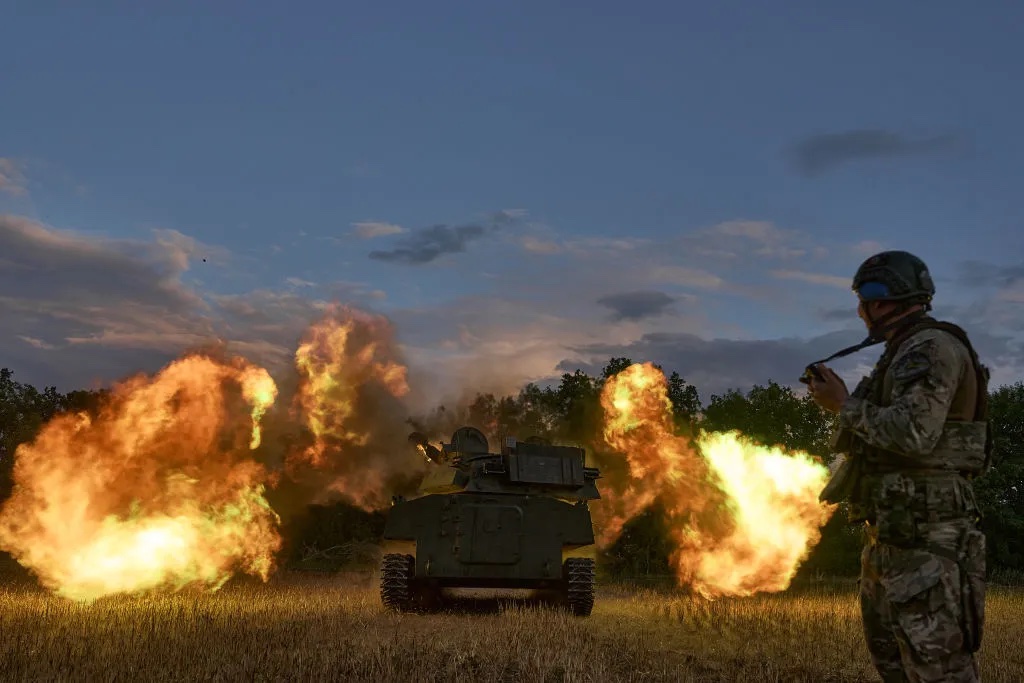
There is, so far, no sign of the Kursk operation lifting the pressure on Ukraine. Russian forces recently advanced near Vovchansk, Chasiv Yar, Toretsk and Pokrovsk. Donbas is on the brink of being fully conquered. Battles in Zaporizhzhia and Kharkiv regions carry on fiercely. The crucial factor now is Ukraine’s capacity to sustain its offensive while also continuing the defense in the east. The lack of manpower could lead to the loss of even more Ukrainian territories and lives.
Kyiv’s message today is that the war is still worth fighting. The invasion of Kursk prevents Russia from moving additional units into Ukraine, disrupts its military logistics, humiliates Putin and gives Ukraine a potential bargaining chip. Zelensky called on his compatriots to “act unitedly” as they did in the first weeks of the invasion in 2022. He is urging allies to remove the restrictions holding Ukraine back. He has claimed that Kyiv and Washington will discuss approving the use of long-range American missiles to strike deep into Russia. He turned to Britain with the same request, but London made it clear that British Storm Shadow missiles are off-limits for the Kursk offensive
Zelensky has a thing for symbolism. The Kursk assault coincides with the anniversary of the sinking of Russia’s Kursk nuclear submarine in 2000, three months after Putin first took office as president. When asked “What happened to the submarine?” Putin replied, smiling: “It sank.” Zelensky says the Kursk submarine disaster marked the beginning of Putin’s rule and “now Kursk has become the disastrous end of his war.”
This article was originally published in The Spectator’s UK magazine. Subscribe to the World edition here.



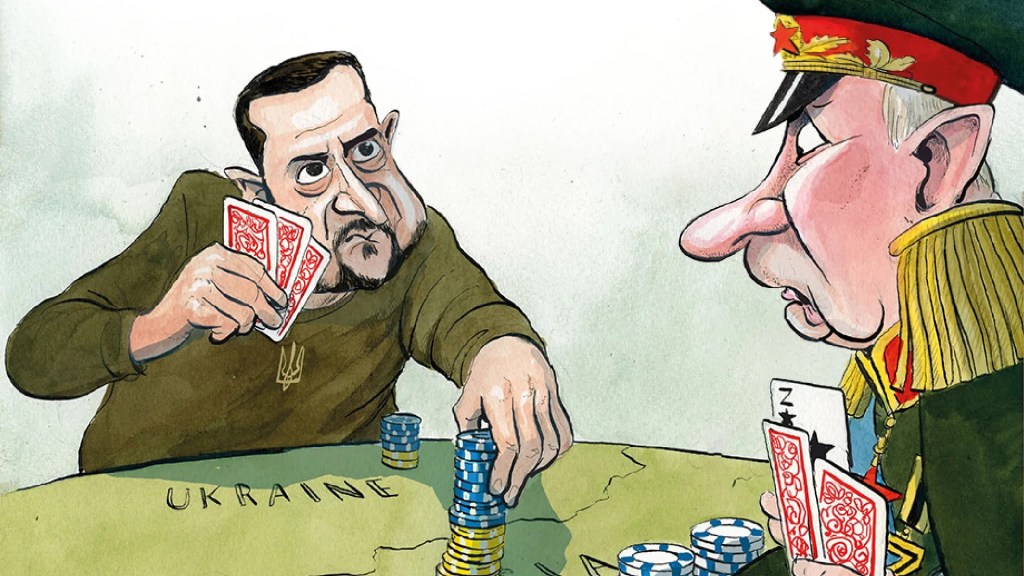







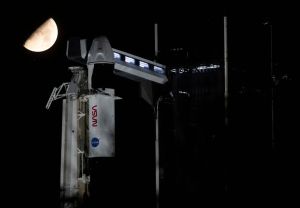
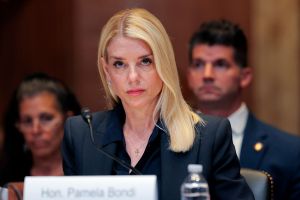
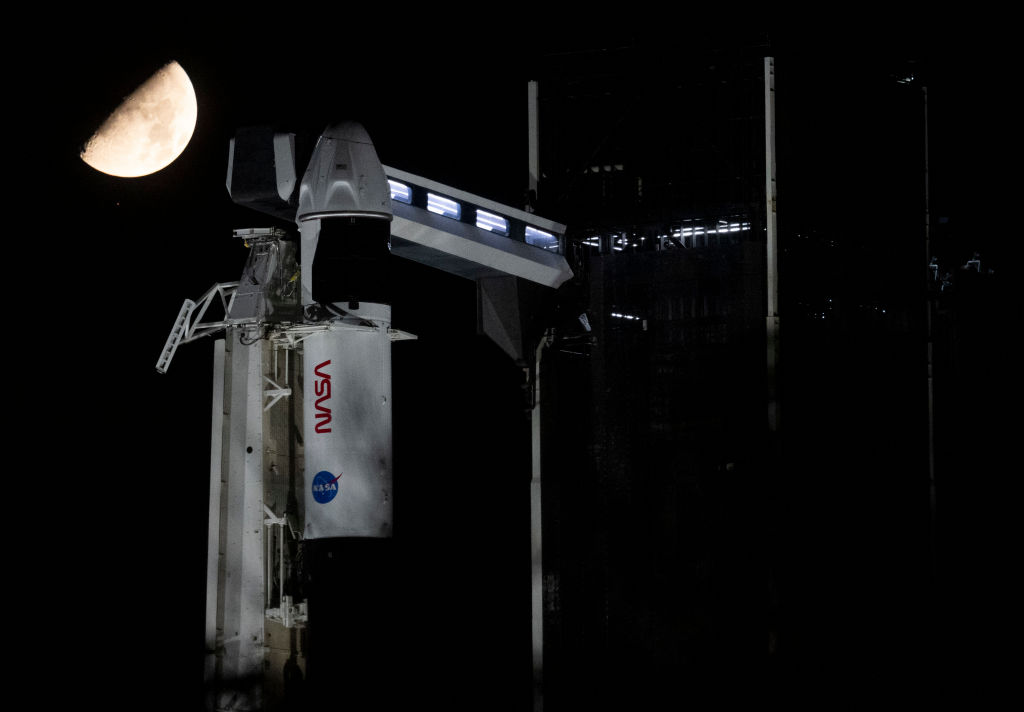


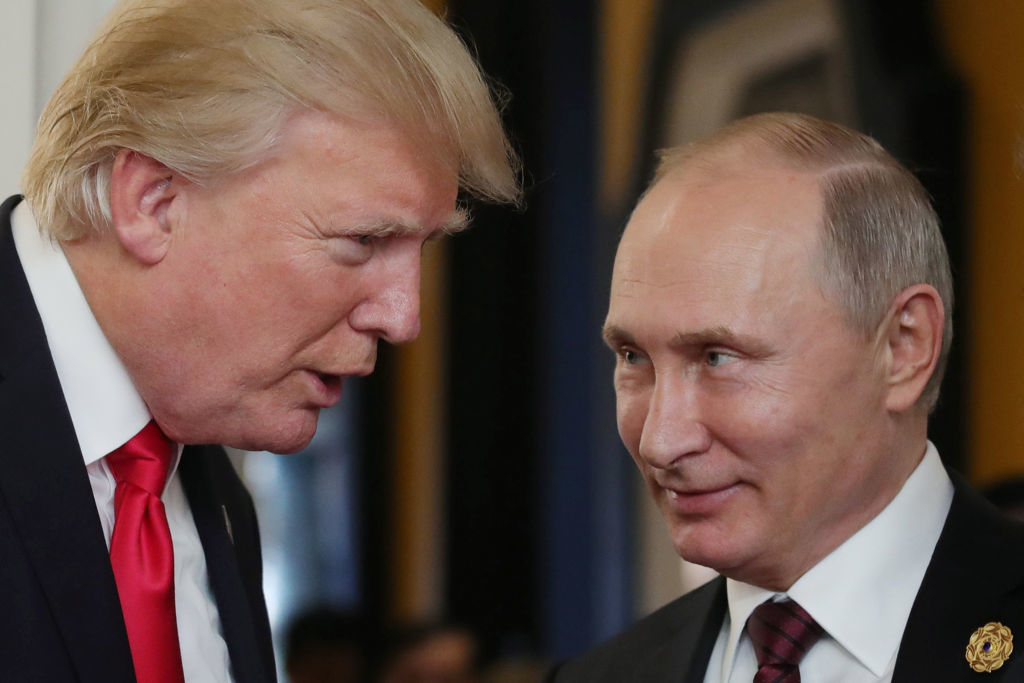









Leave a Reply